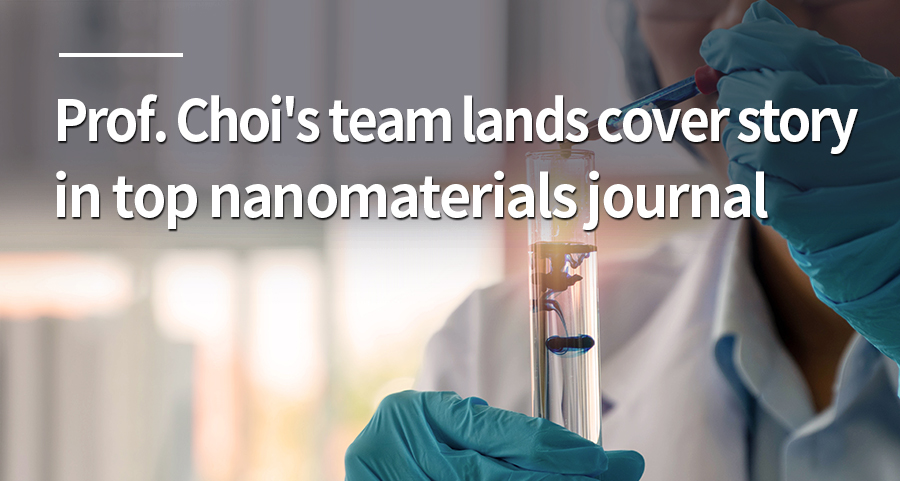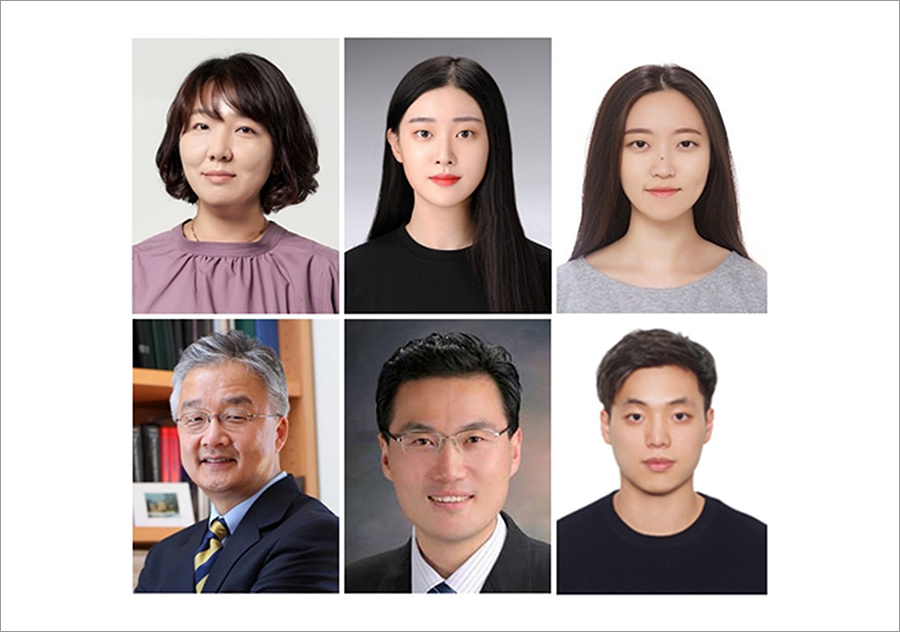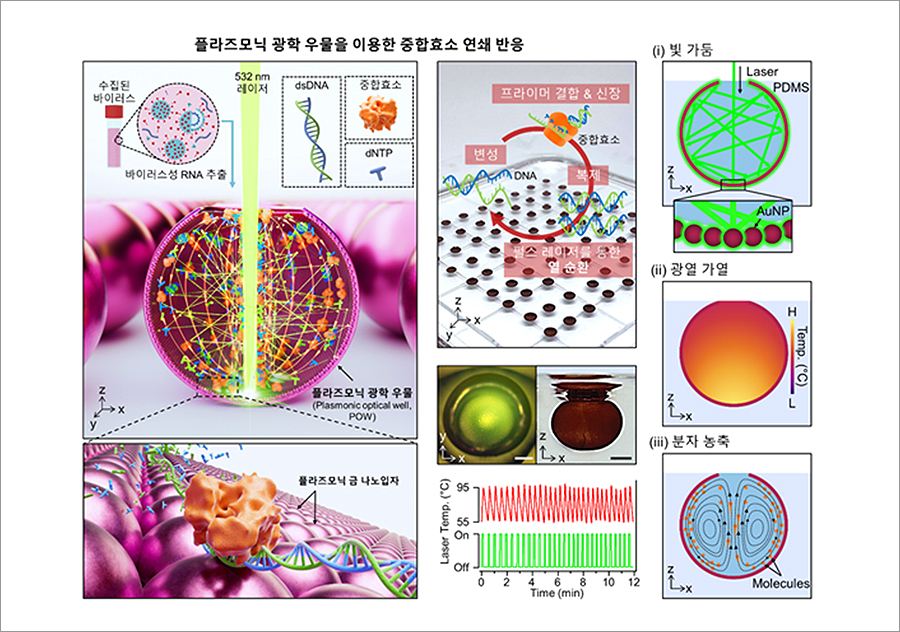Inhee Choi's team lands cover story in top nanomaterials journal

- Cover story published in ACS Materials Letters, the world's leading journal for nanomaterials
- Development of novel photoactive collagen hydrogel nanomaterial based on collagen and gold nanoparticles
A research team led by Professors Inhee Choi and Jungwoo Choi of the Department of Biological Sciences and Jongbeom Lee of the Department of Chemical Engineering University of Seoul (President Won Yong-gul) announced on the 7th that they have developed a new photoactive collagen hydrogel nanomaterial (Au-CHP) based on collagen and gold nanoparticles in collaboration with NeoRegen Biotech (CEO Seo Jung-min).
The new photoactive collagen hydrogel nanomaterial (Au-CHP) is made of biocompatible collagen, thermosensitive polymer and gold as raw materials, and gold nanoparticles are introduced into the hydrogel in a very fast and simple way through polymerization.
The resulting nanoparticle material, when irradiated with visible light after incorporation of bioactive proteins, enables the release of the incorporated proteins with high efficiency through a non-invasive method using light, even within cells, as the thermo-sensitive polymer structure changes due to localized heat generated by the photothermal conversion of the gold nanoparticles present inside the carrier.

▲ (Clockwise from top left) Professor Inhee Choi, Department of Life Sciences, University of Seoul; Professor Jungwoo Choi; Professor Jongbeom Lee, Department of Chemical Engineering; Jungmin Seo, CEO of NeoRegen Biotech; Sunho Hong, Ph.D. student; Seunggi Lee, Ph.D.; and Doyoon Kim, researcher.
The research is considered to be a representative example of bio-convergence research that applies nanomaterial synthesis technology to the life sciences. In particular, it uses stimuli-sensitive nanoparticles to enable accurate and efficient protein delivery in vivo.
The photothermal conversion effect is a phenomenon in which plasmonic gold nanoparticles, such as gold or silver, convert light energy into heat when irradiated with a specific wavelength of light. This effect can be utilized to create stimuli-sensitive drug delivery systems that use light to release drugs at the desired time and in the desired amount.
Applying this photothermal conversion effect, the team developed a system that can precisely control the amount of heat generated by controlling the density of gold nanoparticles inside the hydrogel. They found that this system can effectively increase the delivery efficiency by inducing thermo-sensitive hydrogel structural modification while minimizing heat-induced damage during protein release.

▲ Developed collagen and gold nanoparticles-based photoactive hydrogel nanoparticles (Au-CHP)
The delivery technology using stimuli-responsive nanoparticles enables accurate and efficient protein delivery in vivo, and is expected to contribute to the development of related products in the future, especially in the cosmetics field, as nanoparticles can safely and efficiently deliver proteins into skin tissues based on their small particle size and high safety.
The research was supported by the R&D Foundation for Basic Protective Science and Convergence at University of Seoul and the Collabo R&D Project of the Ministry of SMEs and Startups, and the results were published as the cover article in the latest issue (February 5) of ACS Materials Letters, a prestigious international journal in the field of nanomaterials.







